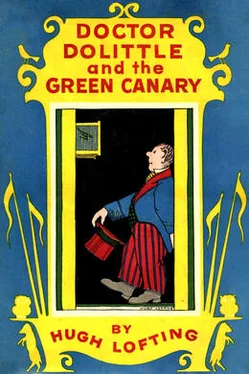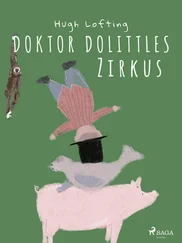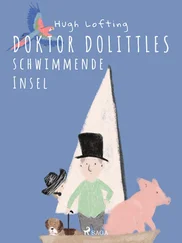'After he had gone a cage was produced by the servants, the most elegant thing in cages you ever saw. It was made of solid silver. It had perches of carved ivory, food troughs of enamelled gold and a swing made of mother–of–pearl. As I was changed into it I wondered what other birds had lived in this gorgeous home and whether they had led happy lives.
'Well, after a few days at the castle I decided that I had not made such a bad move after all. Fortune had again been kind. I was certainly treated royally. My cage was cleaned out scrupulously every day. A piece of apple was given me in the morning and a leaf of lettuce in the evening. The quality of the seed was of the very best. I was given a silver pannikin of warm water to bathe in every other day. And altogether the care and service given me left nothing to be wished for.
'To all this, Marjorie, the Marquis's kind and gentle wife, herself attended—although she evidently had any number of servants to wait on her if she only rang the bell. I became very much attached to her. A thing that bothered me a good deal was that she did a lot of secret weeping. She was clearly very unhappy about something and I wondered what it was. You remember I had sworn I wouldn't sing a note if I was taken from the inn. And I didn't for over a week—much to the Marquis's disgust. He was all for sending me back to the inn when he found out that I hadn't sung since I had been in the castle. But his wife begged him to let her keep me, and he consented. That night—later, I saw her weeping again. And I felt so sorry for her that I suddenly started singing at the top of my voice to see if I could cheer her up. And sure enough she raised her head and smiled and came and talked to me. After that I often sang to drive her tears away all the happy songs I knew, like " Maids, come out, the coach is here, " and the jingling harness, curry–comb song. But I wouldn't sing for the Marquis—not a note. And whenever he came into the room, if I was in the middle of a song, I'd stop at once.
'In that same small, round room I lived all the times I was at the castle. It was apparently a special, letter–writing room, part of the private apartments of the Marquis's wife—or the Marchioness, as she was called. On warm days she would hang my cage on a nail outside the window, and from there I had a wonderfully fine view of the grounds and all the country for miles and miles around.
'One evening I got some idea of the thing—or one of the things—that was wrong between the Marquis and his wife. They had a long argument. It was all about the workmen in the mines and the mills. She wanted him to be kinder to them and to keep more of them working. But he said that with the new machinery he did not need even as many as he had. She told him that a lot of workmen's wives and children were starving. He said that wasn't his fault.
'Further, I gathered from this discussion that in one mine some distance away the workmen who had been dismissed had come back in a crowd and smashed the machines and wrecked the mine. Then soldiers had been called in and many workers were shot and women left widows and children orphans. The Marchioness begged her husband on her knees to stop this kind of thing. He only laughed. The machines were bound to come, he said, to take men's places and do more work. In all the mills and mines throughout the country machinery was being put in and idle men were opposing it. It was the march of time, he told her.
'After the Marquis had gone a letter came for the Marchioness. I could see her getting terribly agitated as she read it. She called in a trusted companion, sort of secretary she had, and told her all about it. It was from a woman in one of the mill towns within the Marquis's lands. It told of the awful distress in the homes of idle workmen, starving children and what not. And that night the Marchioness dressed herself like a working woman and stole out of the castle grounds by the little orchard gate. I saw her from my window in the tower. With loaves of bread and foodstuffs in a basket she went miles and miles on foot to find the woman who had written the letter. When she came back it was after two in the morning. And I, who had been left on my peg outside the window all that time, was nearly frozen in the chill morning air. She brought me in and wept over me when she discovered her forgetfulness. But I quite understood—and, anyway, it was the only time she had ever neglected me.
'Two days after that news came in that another factory had had its machinery smashed. The Marquis was furious, though, as usual, he was very quiet and dignified and cold even in his fury. He sent word for more soldiers to protect the mines and factories. And it seems that the same day that the soldiers arrived one of the sergeants got into a quarrel with a workman. Before anybody knew what was happening a general battle had begun between the troops and the workers. When it was over it was found that one hundred and fifty workers had been killed.
'This caused a tremendous sensation and everybody was talking about it. I heard the servants who swept the room saying that this was war—that the Marquis had better look out. Powerful though he was he couldn't shoot people down in crowds like dogs, they said. One maid there was who used to bring trays up from the kitchen to the Marchioness's little tower room. She had a brother among the workmen who had been killed. I remember her going off in tears to help her sister–in–law, who now had no husband. Many of the castle servants were for going with her, they were so indignant. They were talking angrily around the weeping maid on the front steps when suddenly the Marquis appeared from the garden. He asked them what was all the noise about. And so great was the respect and fear in which he was held that the group without a word melted away, leaving the maid all alone. The Marquis gave her several guineas and turned to go into the house. But the maid flung the money after him and screamed:
'"I want my brother back, not your dirty money!"
'Then she fled, weeping, through the garden. It was the first time I had seen the Marquis openly defied.
'After that,' Pippinella continued, 'feeling began to run high. From all quarters came word that workmen were saying what they thought about the big fight—or slaughter, as they called it. Nearly all those who were employed to run machines went on strike out of sympathy for the relatives of those who had been killed. That, of course, made matters worse, because even more wives and families went hungry than before.
'One morning I was sitting in my cage beside the tower window, looking out at the peaceful woods down below when I saw a man urging a panting horse up the hill towards the castle as fast as he could go. The Marchioness saw him also from the window and sent a maid down at once to find out what news the man brought. The maid returned in a few minutes in a great state of excitement and told her mistress that the whole countryside was up in arms. Thousands of workers, some from towns miles away, were marching towards the castle. The messenger had come to warn the Marquis that his life was in danger. Word had been sent to the soldiers, but no regiments were near enough to come to the rescue for some hours yet. The workers had been joined by many farmers on the Marquis's lands and now an army, thousands strong, was on its way here bent on mischief and destruction.
'Hearing this the Marchioness ran downstairs at once to find her husband. When she was gone I heard a very peculiar noise from beyond the woods. It was a dull, low roar, coming nearer all the time, growing louder and louder. Presently I saw the Marquis and his wife in the garden at the foot of the tower. She was trying to persuade him to fly. At first he refused. But soon, as the howling army of workmen drew nearer, he consented and led the way towards the stables to get horses. The Marchioness had not gone many steps before she evidently remembered me. Because she stopped, pointed up at my cage and said something to her husband. But he only took her by the wrist and dragged her on towards the stables. She looked back several times but the Marquis wouldn't let her linger. Presently they disappeared from view around the hedge and that was the last I ever saw of either of them.
Читать дальше











